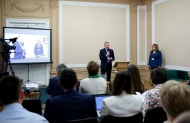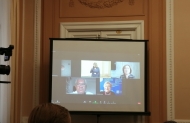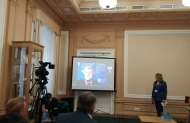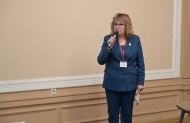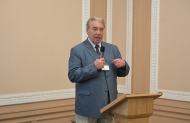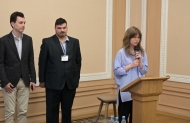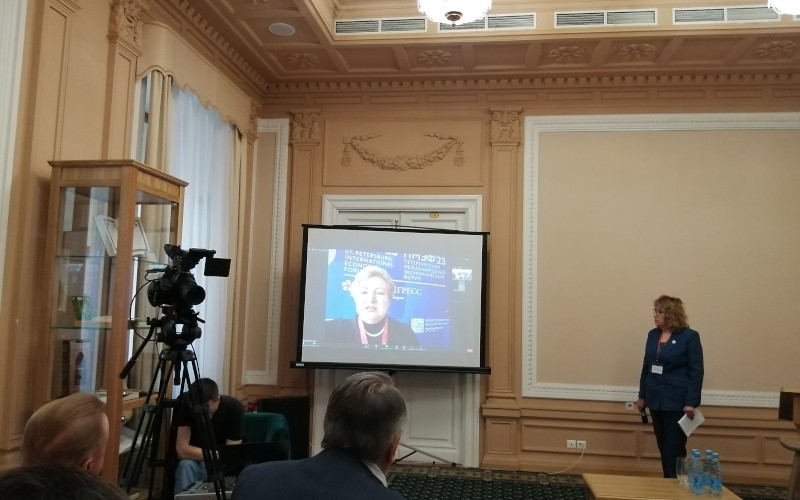
First Deputy Secretary General - Head of the General Secretariat of the Eurasian Peoples' Assembly Svetlana Smirnova spoke at the opening of the International Scientific and Practical Conference "Greater Eurasian Partnership: New Paradigms and Meanings for the Development of the Macroregion", which was held on June 15-16, 2023 at the Center for Oriental Literature of the Russian State Library.
Svetlana Konstantinovna greeted the participants and guests of the conference from the regions of Russia and countries: Kazakhstan, China, Kyrgyzstan, Turkey, Uzbekistan, Iran, India, France.
In her speech, she noted:
“Eurasian integration is not an end in itself. It is very important to form a space of trust: political trust, trust between states and peoples. The Eurasian Peoples' Assembly is one of the institutions of civil society, and through various mechanisms, including the mechanisms of people's diplomacy, we help build bridges of friendship.”
Conference organizers: Institute of Asian and African Countries, Moscow State University named after M.V. Lomonosov, Center for Eastern Literature of the RSL with the support of the Gorchakov Foundation.
The conference initiative is spearheaded by long-time Assembly of the Peoples of Eurasia partner Zhibek Syzdykova, a major expert on the history of Turkey, Central Asia and the Caucasus. She has published more than 100 scientific and educational works, including a number of key monographs and manuals on general historical processes, the history of Kazakhstan, Uzbekistan, Turkmenistan, Kyrgyzstan, Turkey and other countries of Central Asia. J.S. Syzdykova is the initiator of the creation and permanent head of the Department of Central Asian and Caucasian countries of the Institute of Asian and African countries of Moscow State University. Lomonosov.
The conference "Greater Eurasian Partnership: New Paradigms and Meanings for the Development of the Macroregion" outlined the ways of developing multi- and interdisciplinary approaches in studying the processes of the formation of the Greater Eurasian Partnership in the context of global transformations. In total, the conference was attended by about 150 scientists, experts, members of the public, diplomats, graduate students and students. A wide range of issues was discussed covering the formation of the integration contour of the Greater Eurasian Partnership based on regional associations. Much attention was paid to the peculiarities of the civilizational development of Eurasia. Various aspects of dialogue and integration platforms, security, environmental issues, cultural and humanitarian cooperation and the specifics of Eurasian civilisational development were discussed.
The conference was attended by members of the Eurasian Peoples' Assembly.



